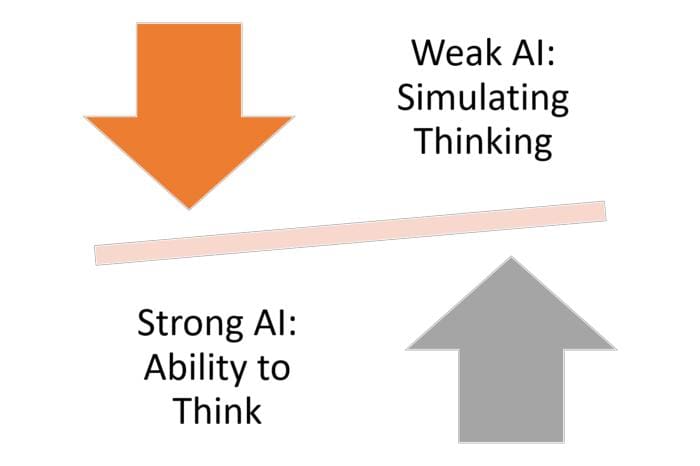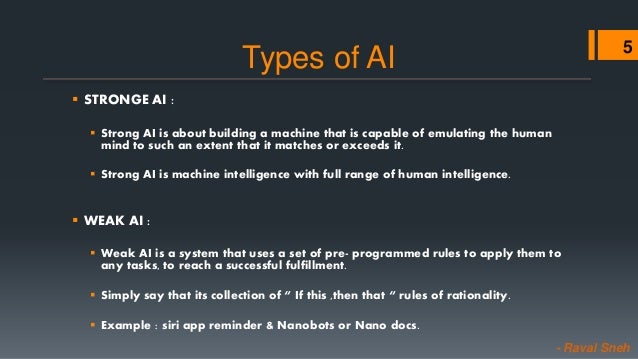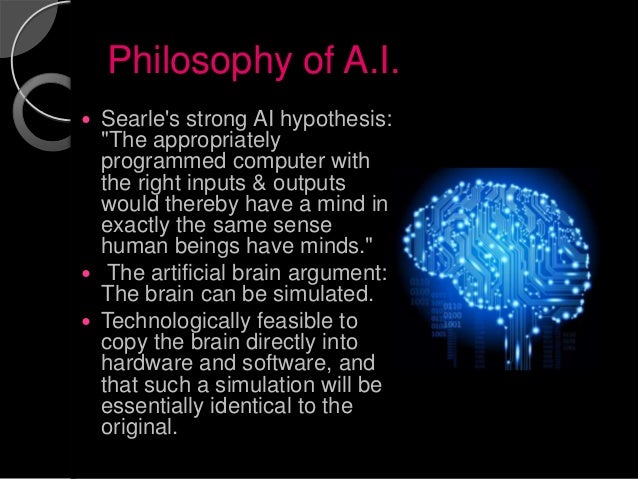Are you asking for 'strong ai hypothesis'? You can find all of the material on this webpage.
Searle also ascribes the following claims to advocates of hefty AI:AI systems backside be used to explain the mind;The study of the brain is impertinent to the cogitation of the mind; andThe Turing examination is adequate for establishing the being of mental states.
Table of contents
- Strong ai hypothesis in 2021
- Alternative hypothesis
- Hypothesis structure
- Strong ai example
- Weak ai examples
- Strong ai vs weak ai
- Strong artificial intelligence is mcq
- Example of a good hypothesis
Strong ai hypothesis in 2021
 This picture shows strong ai hypothesis.
This picture shows strong ai hypothesis.
Alternative hypothesis
 This picture demonstrates Alternative hypothesis.
This picture demonstrates Alternative hypothesis.
Hypothesis structure
 This picture demonstrates Hypothesis structure.
This picture demonstrates Hypothesis structure.
Strong ai example
 This image shows Strong ai example.
This image shows Strong ai example.
Weak ai examples
 This picture illustrates Weak ai examples.
This picture illustrates Weak ai examples.
Strong ai vs weak ai
 This image illustrates Strong ai vs weak ai.
This image illustrates Strong ai vs weak ai.
Strong artificial intelligence is mcq
 This image representes Strong artificial intelligence is mcq.
This image representes Strong artificial intelligence is mcq.
Example of a good hypothesis
 This picture representes Example of a good hypothesis.
This picture representes Example of a good hypothesis.
What do you mean by strong artificial intelligence?
Strong artificial intelligence or, True AI, may refer to: Artificial general intelligence, a hypothetical machine that exhibits behavior at least as skillful and flexible as humans do, and the research program of building such an artificial general intelligence.
Who is the founder of the strong AI theory?
Computational theory of mind, the philosophical position that human minds are, in essence, computer programs. This position was named "strong AI" by John Searle in his Chinese room argument.
Why is the strong AI hypothesis called the weak AI hypothesis?
The first one is called "the strong AI hypothesis" and the second is "the weak AI hypothesis" because the first one makes the stronger statement: it assumes something special has happened to the machine that goes beyond all its abilities that we can test. Searle referred to the "strong AI hypothesis" as "strong AI".
What's the difference between strong AI and weak AI?
Weak AI is the hypothesis that a powerful enough computer could simulate any aspect of the human mind. Strong AI—in its original intended definition—is the hypothesis that "the brain is a digital computer, and the mind is a computer program".
Last Update: Oct 2021